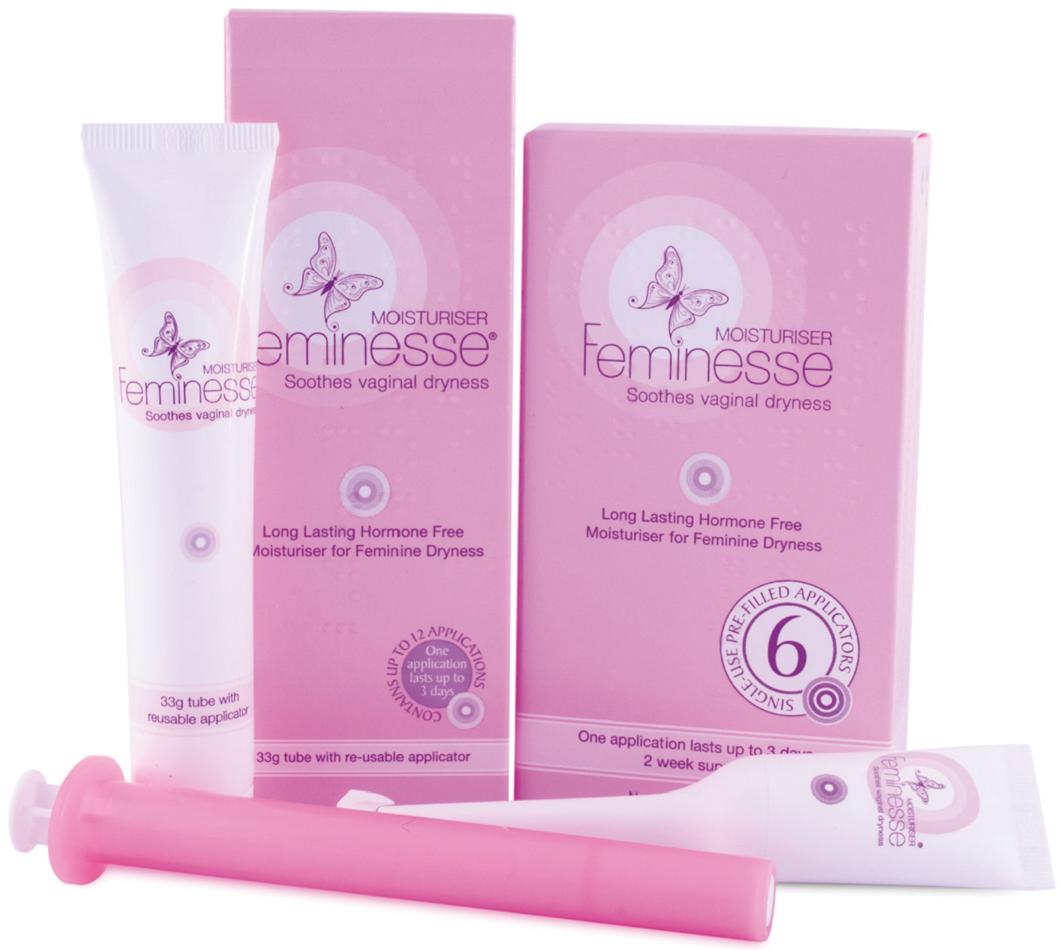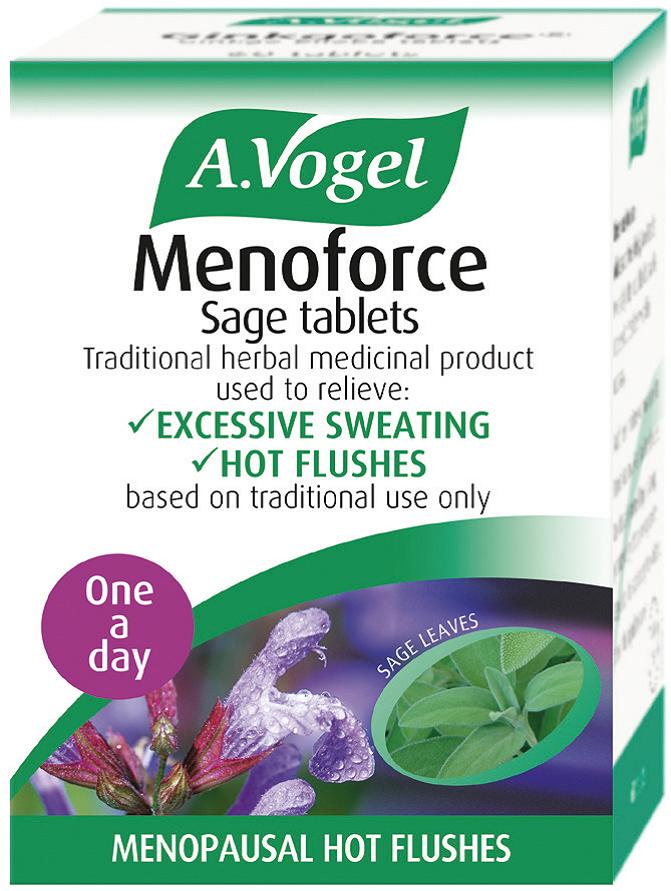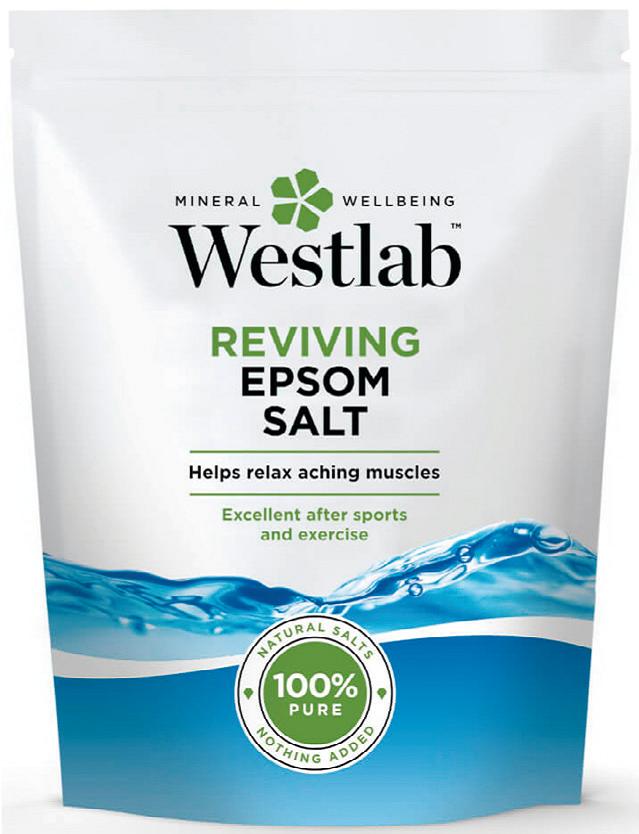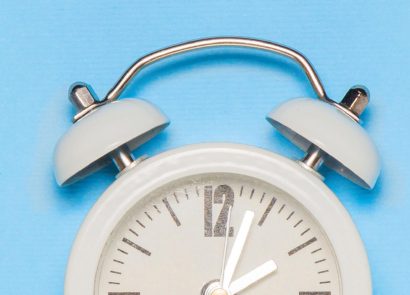The menopause… All women at some point have to go through this “big change” but it doesn’t make it any less difficult. So we’ve got some great tips that you might not know about to help get you through it.
Get moving
Don’t worry! This doesn’t have to mean a hardcore workout. “Find a way of moving your body that feels good to you and do it regularly,” advises personal trainer and The Luna Hive expert, Carly Corrigall (thelunahive.com). “Around three to five times per week is ideal. We know that frequent exercise is great for our health. But it can also help to maintain bone density and boost muscle tone, both of which can decline as you go through the menopause. Aside from these physical benefits, exercise can have a profoundly positive impact on your energy levels and mood. Making you feel better and more like you again too.”
Up your levels of magnesium
“This mineral is essential for the proper functioning of our endocrine system. Yet it’s easily depleted if we consume a lot of sugar, caffeine and take certain medications,” says longevity coach and The Luna Hive expert, Fran Mac (franmac.co.uk). “Insufficient magnesium is linked to a range of menopause symptoms, including irritability, headaches, insomnia, mood swings and cramps. You can ensure your magnesium levels are optimal by altering your diet. Try to include nuts, avocados, leafy green vegetables and even seaweed! Epsom salt baths also promote relaxation, while allowing magnesium to be absorbed through the skin.” Also, try adding a handful of Westlab’s Reviving Epsom Salts (£5.99, westlabsalts. co.uk) to your tub for a relaxing 20-minute soak and feel the benefits for yourself.
Manage hot flushes
Changing what you eat can reduce this particular symptom. “Ever noticed those hot flushes and night sweats increasing after having steak and red wine for dinner?” asks women’s health acupuncturist and The Luna Hive expert, Kerry Woodham (tlcacupuncture.co.uk). “Red meats and alcohol, in addition to caffeine and chocolate, can increase your body temperature. So ensuring that not all of these elements are consumed within one meal can be beneficial. Adding cooling yoghurt or a yoghurt-based dip with your food, balances the heating aspect of many warmer dishes – and yoghurt is a great replacement for sour cream in lots of savoury meals and dips.”
Use yoga
It may sound strange, but yoga can have a real effect on menopausal symptoms, says Uma Dinsmore-Tuli, a yoga therapist with special expertise in yoga therapy for women’s health (yonishakti.co).
Try… Pelvic tilts against a wall
- Place your mat perpendicular to a wall and lie down with your head facing away and your knees bent. Place the soles of your feet on the wall about hip-width apart, with your toes pointing to the ceiling. Your shins should be parallel to the floor at a 90-degree angle to your thighs. Place your hands by your sides, with your elbows out wide.
- As you exhale, activate your legs and push your heels and the balls of your feet into the wall, lifting and spreading out your toes. Keeping your lower back on the floor, let your tailbone lift as you tilt your pelvis back. Then reverse the tilt as you inhale so that you arch your back. Imagine that all the movements of your pelvis are originating in your feet as they push against the wall on your exhale. Repeat several times.
Why it works
Being upside-down changes our perspective on life and revitalises us. These inversions give immediate relief from the sensation of descent into the pelvic organs and create an opportunity to experience ways to maintain a sense of supported lift through breath, pelvic angle and feet and leg activity.
Try… A ladder against the wall
- Stand in mountain pose, about 50cm away from the wall with your feet hipwidth apart and parallel. Inhale and reach your arms up above your head, with your palms facing the wall.
- Exhale, shift your weight into the balls of your feet and tilt your body forwards until your arms come into contact with the wall.
- Breathe fully, mentally scan yourself from your heels to your head on the inhale and from your head to your heels on the exhale. Rest here, for as long as you need.
Why it works
Working against a wall gives a combination of resting and strengthening options to improve posture and build strength. At a symbolic level, using the wall this way creates a real sense of having something solid to rely upon when everything else in life may be feeling a little wobbly!
Give herbs a go
There are various herbs you can use to help alleviate symptoms of the menopause, according to Dr Sarah Brewer, medical director of Healthspan (healthspan.co.uk). We’ve outlined her recommendations here. However, as they could potentially interfere with the workings of other herbal or prescribed drugs you take, be sure to check with a pharmacist prior to adding any to your diet.
Black cohosh
“This wild flower’s underground stem and roots are used to treat menopausal symptoms as it lowers levels of LH (the luteinising hormone) in the brain, helping to normalise oestrogen-progesterone balance,” explains Dr Sarah. “It also has an effect on the dilation of blood vessels, and helps to relieve hot flushes, night sweats, low libido, anxiety and mood swings, as well as improving sleep quality. Results from clinical trials have found that black cohosh extracts had a significant impact on menopausal symptoms, reducing them by over a quarter.”
Sage
“Sage leaves contain several antioxidant polyphenols and essential oils that have antiseptic, astringent and perspiration-inhibiting properties, which can relieve menopausal hot flushes and night sweats,” says Dr Sarah. “A study involving 69 women who’d experienced symptoms for at least a year, and who had at least five flushes a day, showed that sage leaf extracts reduced the frequency of mild hot flushes by 46 percent, moderate flushes by 62 percent, severe flushes by 79 percent and stopped very severe flushes altogether.”
St John’s wort
“This is a traditional medicine for relieving low mood due to its natural antidepressant effect. It’s known as nature’s sunshine herb,” explains Dr Sarah. “It can also improve low sex drive. After three months of taking the herb, 60 percent of women with a low libido became interested in sex again and enjoyed, or even initiated, it with their partner. Plus, 82 percent suffered less irritability, anxiety, low mood, hot flushes, sweating and disturbed sleep. They also reported increased self-esteem, self-confidence and self-respect.”
Rhodiola rosea
“This plant is also known as mountain ginseng,” says Dr Sarah. “Its roots contain several unique substances, such as rhodioflavonoside, which are believed to have a calming action. Increasing levels of serotonin to improve mood, while also suppressing stress hormones. It also has an energising action. Which is particularly helpful when burnout causes fatigue, sleep difficulties, poor appetite, irritability, and headaches. It also enhances sleep quality. Making it helpful for overcoming anxiety and fatigue associated with the menopause.”
Handy helpers
Stock up on these top buys
-

- Feminesse 33g £9.99; Feminesse 6’s, £10.99, feminesse.co.uk
-

- Menoforce Sage Tablets from £13.99, avogel.co.uk and independent health stores nationwide
-

- Westlab Reviving Epsom Salt £5.99, westlabsalts.co.uk






















